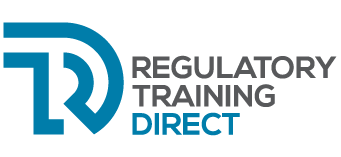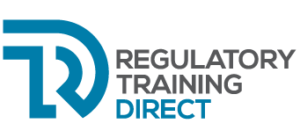current affairs
Issue 245, March 2024
.
Regulatory affairs news
Complementary Medicines and Medical Devices:
Poisons standard: interim decisions on proposed amendments to the Poisons Standard. Source: TGA – click to select either word or PDF version.
New permissible ingredients for listed complementary medicines: in a previous issue we summarised the changes; the new list came into force on 1st March and can beviewed here and the TGA’s summary of these changes is here.
Assessed listed medicines must include ingredients from the same permissible ingredients list but can make slightly higher level therapeutic claims (indications for use), and the evidence to support these indications is assessed by the TGA before the product is included on the Australian Register of Therapeutic Goods. TGA has published updated guidelines which are available here (click to select either MS Word or PDF version).
Consultation on proposed poisons standard amendments for Camelia sinensis, amygdalin and hydrocyanic acid – two proposals: to create a new entry for Camellia sinensis (green tea) extract in preparations for internal use, and to amend the scheduling for amygdalin and hydrocyanic acid to exempt these substances when present as a component of Wild Cherry Bark. Consultation closes 12th April. Full details about the proposals available here.
Important: a publicly available alert has been issued by Australia’s peak industry body Complementary Medicines Australia in relation to the above, it is available here.
GMP Forum: a two day event in November to be held in Melbourne. TGA states “Our new two-day format will give attendees more opportunities to network, participate in interactive sessions and tailor the program to their needs.” Source: TGA
GMP Inspections: Health Canada and TGA have signed a Memorandum of Understanding to further increase collaboration and reliance on Good Manufacturing Practice inspections conducted in countries outside each other’s borders. From 1 March 2024, sponsors providing GMP evidence from Health Canada inspections in third countries as part of certain GMP Clearance applications will require less documentary evidence, not be charged compliance verification fees, and undergo abbreviated GMP Clearance assessments. However due to differences between the respective regulatory frameworks, these benefits will only apply to Active Pharmaceutical Ingredient (API) manufacturers, contract testing laboratories and contract sterilisers. Source: TGA
GMP: From 3 June 2024, the TGA will be using a new Good Manufacturing Practice (GMP) guide for medicines, active pharmaceutical ingredients and sunscreens. Read more here.
Unique Device Identification (UDI) for medical devices. An updated guidance on labelling and packaging information. Source: TGA
Product recalls: TGA has been consulting with industry on ways improve product recalls. Source: TGA
Sun Herbal is recalling Clear the Skin Formula a.k.a. Liang Xue Xiao Feng San CM116, a Chinese medicine for skin rash because the label does not display the required warning statement ‘Do not use if pregnant or likely to become pregnant’ due to the ingredient Artemisia frigida found in this medicine. Medicines containing Artemisa frigida have the potential to cause serious complications to the foetus, including an increased risk of miscarriage, stillbirth, congenital malformation or low birth weight, when used during pregnancy. Source: TGA
Product Defect Correction: The companies supplying Fanttest COVID-10 test kits were made aware of the potential for variability in the way the control line appears (ie a weak/faint/pale control line) when strong COVID-19 positive results are obtained. This may confuse end users in thinking that their test result is invalid while they are actually testing strongly positive for COVID-19. Source: TGA
Hazard Alert: Allegra Innovations Pty Ltd is alerting patients, caregivers, and health care providers about a higher-than-expected risk of device failure with the Hintermann Series H3 Total Ankle Replacement (TAR) system, manufactured by DT MedTech LLC. Source: TGA
Compliance action
Caruso’s Natural Health has been issued five infringement notices totalling $82,500 for an alleged failure to hold information or evidence to support five therapeutic uses in relation to three medicines. Source: TGA
A search warrant was executed on a South Yarra (Melbourne) pharmacy and numerous therapeutic goods were seized as part of an ongoing investigation into the alleged unlawful manufacture, supply and export of therapeutic goods including a large amount of semaglutide, peptides, and human growth hormones. Source: TGA
Safety alerts
TGA has tested a product labelled ‘Semaglutide 2.64mg/mL, L-carnitine 100mg/mL B12 .05mg/mL solution for SC injection 3’, and found that the vials contain ten times the amount of vitamin B12 (cyanocablamin) labelled and the content of L-carnitine, was estimated at 0.5-0.7mg/mL, well below the labelled 100mg/mL. Source: TGA
Referring to cosmetic injectables in advertising: see story below under Cosmetics heading including news about a webinar being held to clarify this issue.
Vaping: a new bill has been introduced to parliament which aims to reduce the widespread availability of vapes by controlling all levels of the supply chain. However the bill maintains legitimate patient access to vapes for smoking cessation or nicotine dependence. . Source: TGA
Botanical Adulterants Prevention Programme and other adulteration stories:
ConsumerLab (USA) tested 17 different cinnamon supplements and spices and found many to be high in toxins – One of the cinnamon spices had a particularly high concentration of lead. Summary of findings here.
Spice adulteration with lead chromate-based pigments poses a significant global health threat due to lead toxicity. A study conducted in the Republic of Georgia revealed alarmingly high lead levels in some spices, implicating them in cases of child lead poisoning. Source: Botanical Adulterants Prevention Program via LinkedIn post
Substitution or dilution of saw palmetto (Serenoa repens) extracts with vegetable oils or fatty acid blends from plant or animal sources to attempt to mimic saw palmetto’s fatty acid composition is not uncommon. Source: Botanical Adulterants Prevention Program
Recent investigations have unveiled an alarming number of food fraud cases in the UKwith herbs and spices such as garlic, oregano, paprika, and turmeric being adulterated with substances like white pepper, olive leaves, or even brick dust. Report from BBC’s Food Progamme. Click the link to listen to the podcast of the program: https://lnkd.in/g-wCaReb . Click the link to watch the summary of the podcast: https://lnkd.in/gtC2GhjY
Botanical Adulterants Prevention Program has reported on a comprehensive article published by Eurofins detailing examples of fraud and adulteration in the botanical products market. The article discusses the difference between fraud and adulteration, the dangers associated with both, how to prevent fraud, and testing for adulteration. Source: Eurofins
To access freely available botanical and technical resources from BAPP, click here
In the press:
According to the Financial Times, olive oil is now the most shoplifted product in Spain’s most populous regions, surpassing traditionally sought-after items for petty thieves such as razor blades, alcohol and ham. Quoted in Sydney Morning Herald
NutraIngedients USA reports on TGA concerns about Ashwagandha – Withania Sominifera
Canberra pill-testing service finds methamphetamine in counterfeit diet pill Source: Australian Broadcasting Commission
FDA more than doubles annual foreign inspections of dietary supplements. Eight percent of FDA inspections of dietary supplement firms for compliance with manufacturing rules were foreign audits in FY23, in 17 countries. The largest number of FDA foreign inspections were conducted in Canada and New Zealand. Sixty percent of foreign firms were issued a Form 483 for alleged violations of the FDA manufacturing rules. Published in Natural Products Insider
Foods:
Review of Food Standards Australia New Zealand Act 1991 – Impact Analysis
Recalls
CJ Nutracon – CJ Foods Australia – Bibigo mini mandu prawn dumpling – Bibigo mandu prawn dumpling – Cau Tre springroll – Cau Tre springroll: presence of an undeclared allergen (Egg). Source: FSANZ
Moringafi – Moringa Oleifera Green Juice – microbial (Salmonella) contamination. Source :FSANZ
Food allergen rules: All food businesses are responsible for managing the presence of allergens in food and must follow rules set out in the Australia New Zealand Food Standards Code. Includes what allergens need to be declared and what allergen names can be used, checking for allergens in ingredients, exemptions, warning and advisory statetements, and more; including The Plain English Allergen Labelling (PEAL) changes to the Food Standards Code. Source: NSW Food Authority
Call for submissions or comments
A1284 – Triacylglycerol lipase from GM Trichoderma reesei as a processing aid from a genetically modified strain of Trichoderma reesei. Details here.
FSANZ CEO Dr Sandra Cuthbert said the application seeks approval to permit the use of Triacylglycerol lipase as a processing aid in the manufacture of bakery products and other cereal-based products. “FSANZ found no potential public health and safety concerns with the use of this Triacylglycerol lipase from a GM strain of Trichoderma reesei containing a gene from Thermomyces lanuginosus,” Dr Cuthbert said.
Amendments to Food Standards Code/Approved variations
A1254 Rosemary extract as a food additive – extension of use FSANZ
A1273 Steviol glycosides as a food additive in Food for special medical purposes FSANZ
A1275 Transglutaminase from GM Bacillus licheniformis as a processing aid FSANZ
A1276 Food derived from herbicide-tolerant soybean line MON94313 FSANZ
A1277 2′-FL from GM Escherichia coli K-12 (gene donor: Helicobacter enhydrae) in infant formula products FSANZ
Approvals from previous applications
FSANZ has approved food from a world-first genetically modified (GM) banana.
The safety assessment found food derived from GM banana line QCAV-4 is as safe and nutritious as comparable conventional banana already in the Australian and New Zealand food supply. QCAV-4 has been genetically modified for resistance to Panama disease, which causes wilting and death in banana plants and is a severe threat to the industry worldwide. Source: FSANZ
NSW Food Authority – update to website https://www.foodauthority.nsw.gov.au/
The following stories and more can be viewed on the NSW Food Authority “Foodwise Autumn” newsletter here:
NSW Food Authority inspections and audits from October to December 2023:
Meat businesses: compliance rate 95%
Licensed seafood businesses: 96% (up by 1%)
Licensed dairy businesss: improvement in compliance, up 3% to 98%
Licensed egg businesses: 1% drop in compliance – 95%
Licensed plant product businesses: 3% increase in compliance – 93%
Licensed hospitals and aged care businesses: 1% increase in compliance to 99%
Plain English Allergen Labelling is now in force
New applications
Application A1287 – Food derived from short-stature corn line MON94804: This application seeks approval for the sale and use of food derived from corn line MON94804, genetically modified to have reduced overall plant height. Source: FSANZ
Application A1294 to permit the sale of Moringa oleifera leaf (fresh and dried), immature (green) pods and seed oil as food and food ingredients in Australia and New Zealand. Source: FSANZ
In the press:
Toddler milks are marketed as beneficial, but they’re unnecessary and could be harmful. Source: Australian Broadcasting Commission
Cosmetics and TGA listed sunscreens:
Primary sunscreens: refer to story above on GMP guidelines.
Pptions for Sun Protection Factor [SPF] testing will very soon be expanded to include 2 new ISO methods which are almost certain to be finalised by the end of this year. The new options are ISO 23675 (Ed. 1) Cosmetics — Sun protection test Methods — In Vitro determination of Sun Protection Factor and ISO 23698 Ed. 1. Cosmetics Sun protection test methods- Measurement of the Sunscreen Efficacy by Diffuse Reflectance Spectroscopy (HDRS). The 2 new methods are substantially different. More information in post written by sunscreen “guru” John Staton here on LinkedIn.
Changes to categorisation, reporting and record-keeping requirements start on 24th April 2024. Key changes to the rules and guidelines are described here, and this pageprovides information about the difference between current guidelines and the incoming version 2 of the guidelines.
Open for comment: AICIS proposed fees and charges for 2024-25, “Have your say” is the form available to submit your comments, and the consultation paper can be downloaded here.
Chemicals added to the Inventory 5 years after issue of assessment certificate:
As at 26th March, 10 chemicals added, CAS numbers, chemical names, molecular formulas and specific information requirements are listed here
Chemicals added to the inventory following issue of assessment certificate (early listing) as at 5th March: 6 chemicals, CAS number or AICIS Approved Chemical Name (AACN), chemical names, molecular formulas and defined scope of assessment can be found here.
New assessment statements published – 12th March: 20 chemicals, chemical name or AICIS approved chemical name, and end use are on this page. 15 of these chemicals have their end use listed as “Component of cosmetic and household products”.
Cosmetics compliance
Referring to cosmetic injectables in advertising: TGA has taken action due to potential unlawful advertising of prescription only medicines including through use of testimonials, claims about the goods, before and after photos, or price lists. Previously refence was allowed only in the context of promoting the service and only by using generic non-product specific terms such as ‘wrinkle reducing injections.’ Express references to products or ingredients themselves, such as ‘Botox’ or ‘botulinum toxin’, were not permitted. The new guidance aims to clarify this. Read more here.
Webinar to clarify the above: TGA is conducting a webinar on 10th April to clarify the above. To learn more and register for the webinar go here.
UK cosmetics news from Rita Sellars at pH Factor
One of skincare’s most popular ingredients, Retinol, now has some restrictions in skincare products.
Under legislation that came into force in the European Union at the end of 2023, there will be restrictions on the concentration of retinol in over-the-counter products, including retinol serums and moisturisers. Face and hand products will be limited to an equivalent of 0.3% pure retinol, with body lotions allowed to contain 0.05%. There is a grace period of three years for brands to reformulate their existing retinol products should they wish to continue trading in Europe.
In its report, the EU’s Scientific Committee on Consumer Safety said: “Compared to food, the contribution of vitamin A from cosmetics is lower. However, it will add to the overall consumer exposure, and this may be of concern for consumers with the highest exposure (5% of the total population) to vitamin A from food and food supplements.”
ACCC:
Product safety: a recently published guideline includes product safety and consumer rights, safety information for specific products, recalls, mandatory standards and product bans. Source: ACCC
Environmental and sustainability claims: information page includes:
Environment and sustainability claims must be truthful and accurate.
You should have reasonable grounds for making representation about future events.
Businesses have responsibilities under the Australian Consumer Law not to make false or misleading claims.
A business needs to consider the claims it uses. It also needs to consider the information that’s left out and the visual elements, colours and logos used.
‘Greenwashing’ is where a business uses any claim, or omits key information, that makes a product or service seem better or less harmful for the environment than it really is.
(We have a 2 hour course addressing these issues and more: Advertising and Social Media in Australia and New Zealand)
Compliance and enforcement priorities: this page details ACCC enforcement and compliance priorities for 2024 – 2025
Training news
1.50. Agricultural and Veterinary Chemicals Including Complementary Animal Health Products such as Herbal and Nutraceutical Remedies. We are seeing an increased interest in this course as more health companies become interested in natural health supplements for animals. this is a one hour course and the agenda can be viewed here.
4.02. New Product Development – Stage Gate Process. An interesting 1.5 hour course for all involved in new product development. Part 1 – Foundations; Part 2 – Stage Gate Document Stream. This course comes with a set of eight templates and forms. View the agenda here.
All our courses can be viewed here https://www.regulatorytrainingdirect.com/#course-summary. Book a course here.
Published by Regulatory Training Direct www.regulatorytrainingdirect.com
Providing regulatory training courses for complementary medicines, GMP, foods, cosmetics dietary supplements.
Contact us to become a sponsor of one of our newsletters.
This newsletter is sent at no charge. You are welcome to forward this to any colleagues who may find it useful. To receive this newsletter regularly click this link



